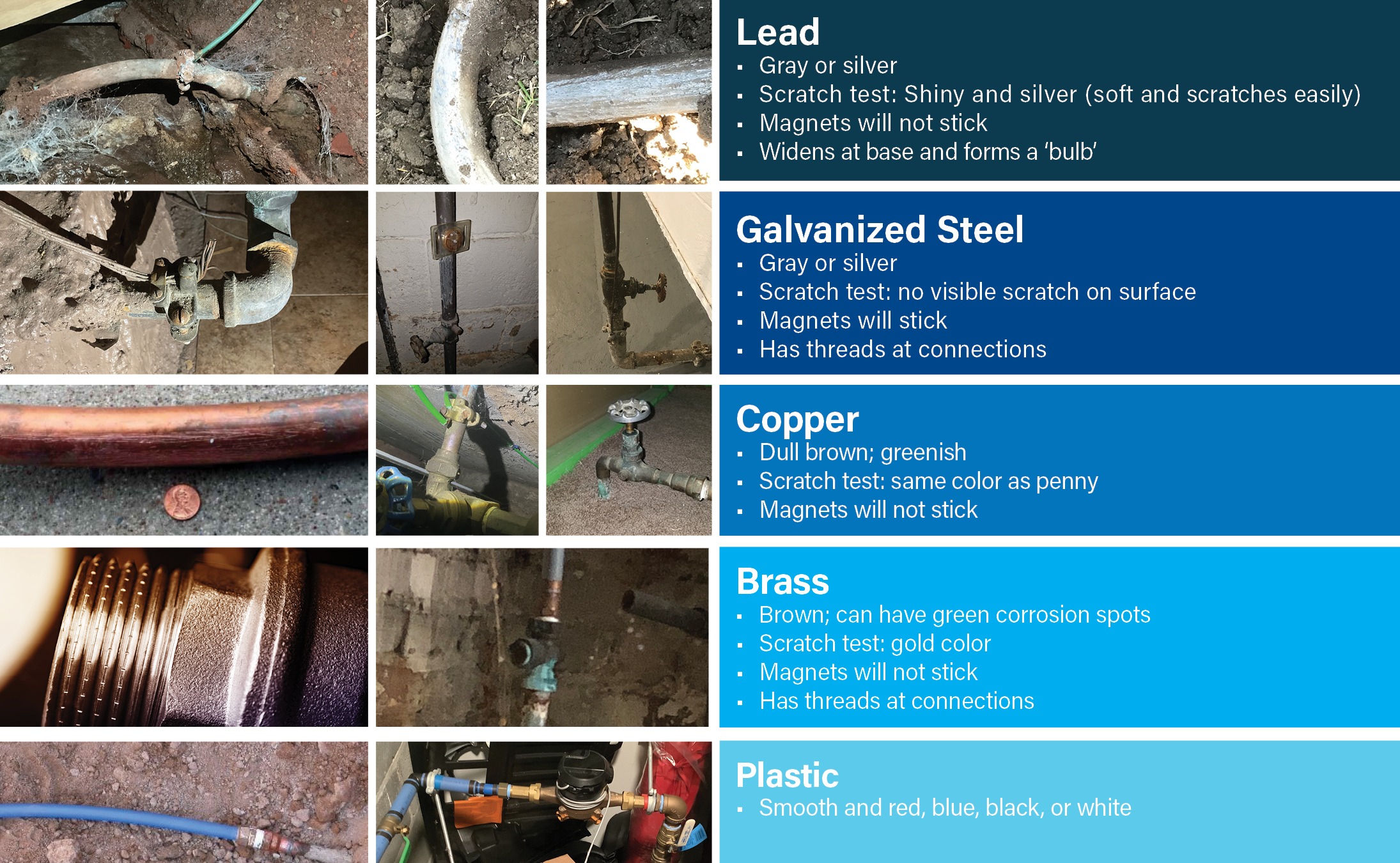About Billing
A delinquent letter is automatically sent requesting payment.
Contact the Customer Service Department and speak with a Customer Service Representative.
Yes, In NJ, you must pay the entire balance owed plus a $28.00 reconnection fee. In DE, please see the TUI Tariff for associated charges.
Contact the Customer Service Department and a representative will let you know the amount that is owed. Once full payment has been received and a restoration order has been issued, your service will be restored within 24 hours.
You can view current company tariffs at the company pull down section of our website labeled Rates Information. The tariff can be found there.
Service is generally restored within 24 hours of receipt of cash, money order or certified check payment.
Middlesex Water generally prohibits utility workers from accepting payments of any kind. Please call our Customer Service office to make payment arrangements.
For added convenience and flexibility, we offer our customers a way to pay their bills online through our MyH20 online pay portal. This saves you postage, paperwork and helps the environment. You can access the Pay Online pay portal from our home page.
Your bill is comprised of a service charge and a consumption charge. The service charge portion of your bill is designed to recover a portion of the fixed costs incurred in providing water service. These costs include the cost of maintaining the supply, treatment, distribution and service facilities that are needed to provide water service to your home or business. This charge appears on every bill and does not vary with consumption, but is related to the size and flow capacity of your meter. The consumption charge reflects the amount of water you actually used.
If you receive a bill that is more than you expected and you know you will have trouble paying it by the due date, we encourage you to contact us right away. Our representatives will be happy to work with you to establish satisfactory payment arrangements. We want to help you find a way to keep your service so you don’t have the added burden of a disconnect fee.
Residential and commercial accounts are read approximately every 90 days.
A delinquent letter is automatically sent requesting payment.
Contact the Customer Service Department and speak with a Customer Service Representative.
Yes, you must pay the entire balance owed plus a reconnection fee.
Contact the Customer Service Department and a representative will let you know the amount that is owed. Once full payment has been received and a restoration order has been issued, your service will be restored within 24 hours.
You can view current company tariffs at the company pull down section of our website labeled Rates Information. The tariff can be found there.
Service is generally restored within 24 hours of receipt of cash, money order or certified check payment.
Middlesex Water generally prohibits utility workers from accepting payments of any kind. Please call our Customer Service office to make payment arrangements.
For added convenience and flexibility, we offer our customers a way to pay their bills online through our MyH20 online pay portal. This saves you postage, paperwork and helps the environment. You can access the Pay Online pay portal from our home page or CLICK HERE.
Your bill is comprised of a service charge and a consumption charge. The service charge portion of your bill is designed to recover a portion of the fixed costs incurred in providing water service. These costs include the cost of maintaining the supply, treatment, distribution and service facilities that are needed to provide water service to your home or business. This charge appears on every bill and does not vary with consumption, but is related to the size and flow capacity of your meter. The consumption charge reflects the amount of water you actually used.
If you receive a bill that is more than you expected and you know you will have trouble paying it by the due date, we encourage you to contact us right away. Our representatives will be happy to work with you to establish satisfactory payment arrangements. We want to help you find a way to keep your service so you don’t have the added burden of a disconnect fee.
About Service
Our Call Center hours of operation are Monday through Friday from 9 a.m. to 5 p.m.
In New Jersey, please call 1- 800-549-3802
In Delaware, please call 1-877-720-9272
Contact our Customer Service Center at (800) 549-3802 will be able to assist you in starting, stopping or transferring service.
Each year, Middlesex Water Company and its affiliates perform maintenance on our water distribution system. To cleanse the system, we systematically open our fire hydrants to increase water flows – allowing us to “flush” any minerals and deposits from the pipes. This essential preventive maintenance helps us to continue to provide customers with high-quality water service.
While flushing the system won’t interrupt your water service, when crews are working in your area, you may notice a temporary drop in water pressure or discolored water. This is normal. If discolored water occurs, let the cold water run until clear before using it again and refrain from doing laundry during that time.
Check for discolored water before using the washing machine or dishwasher. Wait until the water runs clear at the cold water tap in the lowest level of your home before doing laundry or running the dishwasher. NOTE: If your laundry becomes stained, DO NOT PUT YOUR LAUNDRY IN THE DRYER. Rewash clothes immediately using detergent and add a rust remover. Most rust removers can also be used on stained fixtures. In some cases, slight discoloration might linger for a few hours. This discoloration only affects the appearance of the water and does not affect water quality. No health hazards are associated with discolored water from hydrant flushing.
About Water Use
Estimates vary, but each person uses about 100 gallons of water per day. Americans drink more than 1 billion glasses of water a day.
Like many public water suppliers, Middlesex Water Company is required by law to provide disinfectant (chlorine) to the water during the treatment process to kill germs. This may mean that you may encounter chlorine-type tastes or odors from time to time. If you find this unacceptable, collect tap water in a container, shake it and let it stand for a while before covering the container and placing it in the refrigerator for drinking. The chlorine odor will dissipate.
The cloudy water is caused by tiny air bubbles in the water similar to the gas bubbles in carbonated soft drinks. After a while, the bubbles rise to the top and are gone. This type of cloudiness occurs more often in the winter when the drinking water is cold.
The spots that may appear on glassware after washing and air drying are caused by nontoxic minerals that remain on the glass when the water evaporates. Spots on glass shower doors appear for the same reason. Commercial products are available that allow the water to drain from glassware more completely.
Water provided by your utility meets all state and federal primary standards for drinking water quality. However, some customers may choose to install additional home treatment devices to meet their personal preferences. These treatment devices do not necessarily make the water safer or healthier to drink. And, if not properly maintained, can actually cause water quality problems.
Our bodies need fluid, even when we don’t feel thirsty. But keep in mind that beverages such as juice, milk and soft drinks and many foods are almost all water and count towards the required fluid intake. Water is usually recommended over other beverages, however, because it does not contain caffeine or sugar.
It is best to use cold water. Hot water can contain rust, copper and lead or other impurities from your household plumbing because these contaminants dissolve more quickly into hot water than into cold water.
Exposure to high levels of lead is a serious health risk. Lead builds up in the body over many years and can cause damage to the brain, red blood cells, and kidneys. The greatest risk is to young children and pregnant women and their unborn babies. Amounts of lead that won’t harm adults can slow down the normal mental and physical development of children, particularly those under 6 years old.
Most lead exposure comes from nonwater sources such as contaminated soil, dust, or paint chips. However, while it’s rarely found in water leaving a treatment plant or traveling through a main, lead can be present in drinking water. Lead enters water as a result of corrosion, as water comes into contact with lead materials in home plumbing, or in some cases, with lead pipes connecting homes to water mains. Customers should be conscious of the composition of their service line and home plumbing components and replace any lead material.
One simple method to help you avoid high lead levels is to flush your water tap. If the faucet has gone unused for more than a few hours, let the water run until it’s noticeably colder (this may take two minutes or more) before using it for drinking or cooking. That means you’re getting water from the main, where lead is rarely present. Catch the water you flush out and use it for watering plants, so that it doesn’t go to waste.
You can also have your water tested for lead by a state-approved laboratory. If the test shows a high value (more than 0.015 mg/L), contact your water utility for additional information on how best to protect yourself and your family. USEPA, the Centers for Disease Control and Prevention (CDC), and your local health department can provide important information on the negative health effects associated with lead.
Fixing leaking faucets and toilets is a great start. If your faucet is dripping at a rate of one drop per second, you can waste up to 2,700 gallons per year, adding to increases in your water bill. The average leaky toilet can waste about 200 gallons of water per day. That’s over 6,000 gallons a month for just one leaking toilet! Some toilets may produce a running water sound that is easy to hear. Some leaks are visible as a small trickle running from the rim to the water in the bowl. One way to find out if you have a toilet leak is to place a drop of food coloring in the toilet tank. If the color shows up in the bowl within 10 minutes without flushing, you have a leak. Make sure to flush immediately after this experiment to avoid staining the tank.
Sediment can gather inside your water heater causing a loss in efficiency and, at times, discolored water. If you notice that your cold water is clear and the water from your hot water tap is discolored, you may need to flush your hot water.
General Questions
A network of transmission and distribution mains transports water from our plants and wells to our customers’ homes and businesses for their use. The pipelines range in size from 6″ to 48″ in diameter and are generally located within the public street rights of way. Other facilities include control valves, fire hydrants, service lines and meters. Fire hydrants used by local fire departments are connected directly to our distribution mains. Service lines are smaller pipes that bring the water from the distribution mains to the connection with customer’s homes or businesses.
Potable (which rhymes with floatable) means water that is safe to drink. Potable water must come from a natural source, e.g. surface or groundwater, and must meet or be better than federal and state standards for drinking water quality.
Many customers inquire about the hardness of water when purchasing dishwashers, water heaters and washing machines. Hardness in water is caused by two minerals: calcium and magnesium. If your water contains substantial amounts of these minerals, water is said to be hard because making a lather or suds is hard to do. Water containing little calcium or magnesium is usually called soft water. Water hardness varies depending on where you live and what source water you are receiving at the time. Call our Customer Service Department to receive the latest water hardness updates.
The major source of pollution in towns and cities is rainwater that flows into street catch basins (called urban runoff or storm water runoff). While the rainwater alone is not necessarily harmful, it frequently carries untreated waste products from our streets and yards directly to rivers, lakes, and streams – our drinking water sources.
We can all play a role in protecting water quality in our neighborhoods. You can prevent pollution by limiting the use of fertilizers, pesticides and herbicides on your garden and lawn. Also use proper methods to dispose hazardous household waste such as bleach, motor oil, paint, household cleaners and pharmaceutical and personal care products. Some towns have drop off areas for these items. Check with your local Public Works Department for guidelines. These simple actions can prevent hazardous materials from seeping back into the soil and contaminating water supplies.
Adverse weather conditions and significant changes in temperature can build up pressure and stress in a water main which, in some cases, can lead to cracks and eventually cause the pipe to break. The age of the pipe and soil conditions may also play a role. You can usually tell when a water main break has happened because water is bubbling up from the ground. Sometimes breaks are less noticeable and may only be detected by a loss of water pressure. We strive to repair water main breaks and restore service as quickly as possible. Water service may be interrupted while the main is being isolated and repaired but is resumed once the pipe has been replaced, flushed and water samples taken to ensure water quality.
There is no evidence to show that bottled water is better than tap water. All tap water is regulated by the USEPA and must meet strict standards as set forth in the Safe Drinking Water Act. Bottled water is regulated by the U.S. Food and Drug Administration. The water provided by community water systems is regularly tested for compliance with state and federal regulations, whereas bottled water suppliers do not have such stringent reporting or testing requirements.
The Safe Drinking Water Act requires community water systems to collect frequent samples and conduct extensive laboratory tests. States implement the federal law and may add requirements of their own. Testing results are reported to the state regulatory agency (usually the state health department) and are made available to all of us.
The right to use water from lakes, rivers or ground water sources is granted by the Federal government and State agencies. Water utilities do not own the water. Their role is to collect, treat and distribute clean and safe water in a reliable manner. In most states the actual water is held in public trust and local water utilities are allowed to remove the water from a source (river, ground, lake) with permission from a governing body. For providing this service, water utilities generally charge less than 1 penny per gallon for the water.


